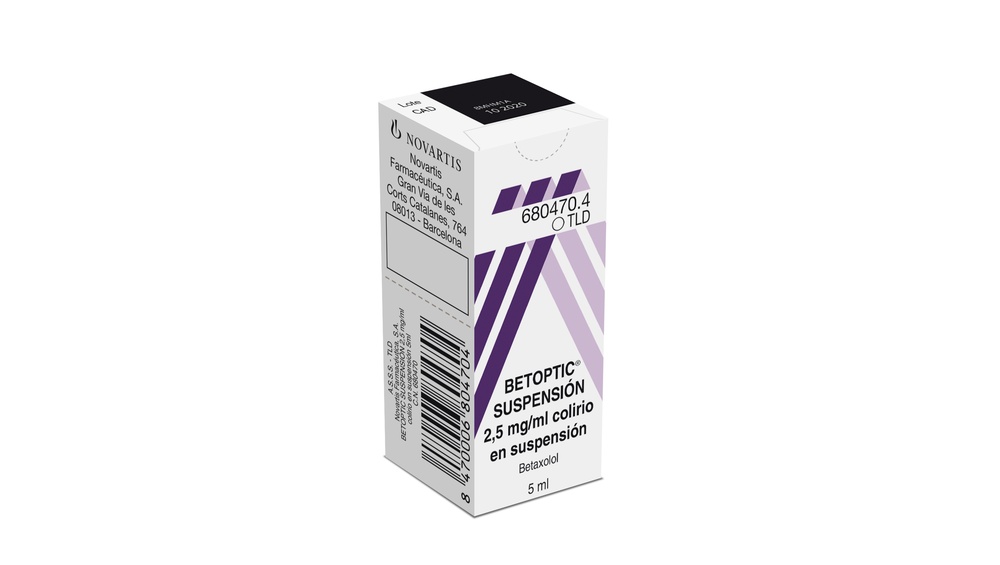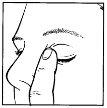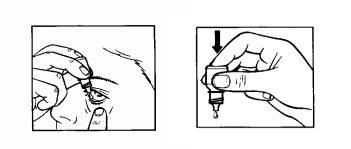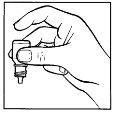

BETOPTIC SUSPENSJA 2,5 mg/ml KROPLE DO OCZU

Zapytaj lekarza o receptę na BETOPTIC SUSPENSJA 2,5 mg/ml KROPLE DO OCZU

Jak stosować BETOPTIC SUSPENSJA 2,5 mg/ml KROPLE DO OCZU
Wprowadzenie
Charakterystyka produktu: informacje dla użytkownika
BETOPTIC SUSPENSIÓN 2,5 mg/ml krople do oczu w postaci zawiesiny
Betaksolol
Przed rozpoczęciem stosowania tego leku przeczytaj dokładnie całą ulotkę, ponieważ zawiera ona ważne informacje dla Ciebie.
- Zachowaj tę ulotkę, ponieważ może być konieczne ponowne przeczytanie jej.
- Jeśli masz jakieś wątpliwości, skonsultuj się z lekarzem lub farmaceutą.
- Ten lek został przepisany wyłącznie dla Ciebie i nie powinieneś go podawać innym osobom,
ponieważ może im zaszkodzić, nawet jeśli mają takie same objawy jak Ty.
- Jeśli wystąpią działania niepożądane, skonsultuj się z lekarzem lub farmaceutą, nawet jeśli są to
działania niepożądane, które nie są wymienione w tej ulotce. Zobacz punkt 4.
Zawartość ulotki
- Co to jest BETOPTIC SUSPENSIÓN i w jakim celu się go stosuje
- Informacje, które należy wiedzieć przed rozpoczęciem stosowania BETOPTIC SUSPENSIÓN
- Jak stosować BETOPTIC SUSPENSIÓN
- Mogące wystąpić działania niepożądane
- Przechowywanie BETOPTIC SUSPENSIÓN
- Zawartość opakowania i dodatkowe informacje
1. Co to jest BETOPTIC SUSPENSIÓN i w jakim celu się go stosuje
Jest to krople do oczu należące do grupy leków zwanych beta-blokerami, zawierające jako substancję czynną betaksolol, który działa poprzez obniżanie ciśnienia wewnątrz gałki ocznej (ciśnienia wewnątrzgałkowego), możliwe poprzez redukcję humoru wodnistego (płynu w komorze przedniej oka).
Betoptic Suspensión jest wskazany do obniżania podwyższonego ciśnienia wewnątrzgałkowego u pacjentów z jaskrą przewlekłą o szerokim kącie lub z nadciśnieniem ocznym.
Może być stosowany samodzielnie lub w połączeniu z innymi lekami obniżającymi ciśnienie wewnątrzgałkowe.
2. Informacje, które należy wiedzieć przed rozpoczęciem stosowania BETOPTIC SUSPENSIÓN Nie stosuj Betoptic Suspensión
Nie stosuj, jeśli masz niewydolność serca, wolne bicie serca lub zaburzenia rytmu serca (nieregularne bicie serca) lub inne choroby serca, które powodują u Ciebie czasami omdlenia.
Nie stosuj, jeśli masz lub miałeś poważne problemy z oddychaniem, takie jak ciężka astma lub przewlekła obturacyjna choroba płuc (poważna choroba płuc, która może powodować świszczący oddech, trudności z oddychaniem i/lub długotrwały kaszel).
Ostrzeżenia i środki ostrożności
Przed rozpoczęciem stosowania Betoptic Suspensión skonsultuj się z lekarzem lub farmaceutą.
Stosuj ten lek tylko w oku (oczach).
Przed rozpoczęciem stosowania tego leku poinformuj lekarza, jeśli masz lub miałeś:
- chorobę wieńcową (objawy mogą obejmować ucisk lub ból w klatce piersiowej, brak tchu lub duszność), niewydolność serca, niskie ciśnienie krwi.
- blok serca pierwszego stopnia (choroba związana z rytmem serca).
- problemy z oddychaniem, astmę lub przewlekłą obturacyjną chorobę płuc.
- chorobę spowodowaną złym krążeniem krwi (taką jak choroba Raynauda, z mrowieniem w palcach rąk lub stóp).
- cukrzycę, ponieważ betaksolol może maskować objawy i symptomy niskiego poziomu
cukru we krwi.
- nadczynność tarczycy, ponieważ ten lek może maskować objawy i symptomy.
- jeśli masz jakąś chorobę charakteryzującą się przewlekłą słabością mięśni (taką jak miastenia).
Jeśli masz podejrzenie nadczynności tarczycy, powinieneś być ściśle monitorowany.
Jeśli masz historię ciężkich reakcji alergicznych lub atopicznych (alergii o nieznanej przyczynie), możesz być bardziej wrażliwy na różne alergeny. Jeśli doświadczysz jakiejkolwiek ciężkiej reakcji alergicznej (wyprysku na skórze, zaczerwienienia i swędzenia w oku, gorączki, obrzęku gardła, języka lub twarzy) podczas stosowania tego leku, natychmiast przerwij leczenie i skonsultuj się z lekarzem. Podczas każdego leczenia poinformuj lekarza, że stosujesz ten lek.
Jeśli stosujesz inny lek beta-adrenergiczny, w tym inną drogę podania, powinieneś być ostrożny.
Poinformuj lekarza, że stosujesz ten lek, zanim zostaniesz poddany operacji, ponieważ betaksolol może zmienić działanie niektórych leków stosowanych podczas znieczulenia.
Jeśli masz jaskrę z zamkniętym kątem, lekarz powinien przepisać ten lek w połączeniu z innymi lekami, które działają poprzez zamykanie źrenicy. Powinieneś regularnie kontrolować ciśnienie w oku, szczególnie na początku leczenia.
Jeśli masz zaburzenia w przezroczystej części przedniej gałki ocznej (rogówce), skonsultuj się z lekarzem, ponieważ ten lek może powodować suchość w oczach.
Jeśli masz zaburzenia skórne, takie jak łuszczyca, mogą się one nasilić.
Jeśli używasz soczewek kontaktowych:
Nie powinieneś stosować tego leku, gdy używasz soczewek kontaktowych.
Stosowanie u pacjentów w podeszłym wieku
Zobacz punkt 3.
Stosowanie u sportowców
Ten lek zawiera składnik, betaksolol, który może powodować pozytywny wynik testu na doping.
Dzieci
Nie ustalono skuteczności i bezpieczeństwa u dzieci.
Pozostałe leki i Betoptic Suspensión
Poinformuj lekarza lub farmaceutę, jeśli stosujesz, stosowałeś niedawno lub możesz potrzebować stosowania innego leku.
Ten lek może wpływać na lub być wpływany przez inne leki, które stosujesz, w tym inne krople do oczu do leczenia jaskry. Skonsultuj się z lekarzem, jeśli stosujesz lub planujesz stosować leki obniżające ciśnienie krwi, leki na serce lub leki do leczenia cukrzycy, leki stymulujące układ nerwowy lub leki psychotropowe (stosowane zwykle w zaburzeniach uwagi).
Ciąża, laktacja i płodność
Jeśli jesteś w ciąży lub w okresie karmienia piersią, podejrzewasz, że możesz być w ciąży lub planujesz zajście w ciążę, skonsultuj się z lekarzem lub farmaceutą przed zastosowaniem tego leku. Nie stosuj tego leku, jeśli jesteś w ciąży, chyba że lekarz uzna to za konieczne.
Nie stosuj tego leku, jeśli karmisz piersią, ponieważ betaksolol może przenikać do mleka matki.
Jazda i obsługa maszyn
Możesz zauważyć, że Twoje widzenie staje się niewyraźne przez jakiś czas po aplikacji kropli. Nie prowadź pojazdów ani nie obsługuj maszyn, dopóki ten efekt nie minie.
BETOPTIC SUSPENSIÓN zawiera chlorek benzalkoniowy
Ten lek zawiera 0,1 mg chlorku benzalkoniowego w każdym ml.
Chlorek benzalkoniowy może być wchłaniany przez miękkie soczewki kontaktowe, zmieniając ich kolor. Należy usunąć soczewki kontaktowe przed zastosowaniem tego leku i odczekać 15 minut, zanim je ponownie założyć.
Chlorek benzalkoniowy może powodować podrażnienie oczu, szczególnie jeśli masz suchość w oczach lub inne choroby rogówki (przezroczystej warstwy przedniej gałki ocznej). Skonsultuj się z lekarzem, jeśli odczuwasz nieprzyjemne uczucie, swędzenie lub ból w oku po zastosowaniu tego leku.
3. Jak stosować BETOPTIC SUSPENSIÓN
Stosuj dokładnie wskazania dotyczące dawkowania tego leku, wskazane przez Twojego lekarza. W przypadku wątpliwości skonsultuj się ponownie z lekarzem lub farmaceutą.
Stosowanie u dorosłych
Zalecana dawka to 1-2 kropli w oku (oczach) dotkniętym chorobą, dwa razy na dobę (rano i wieczorem).
Może upłynąć kilka tygodni, zanim uzyskasz stabilną odpowiedź na leczenie.
Terapia zastępcza (monoterapia): Jeśli stosujesz inny lek na jaskrę i lekarz nakazał Ci zastąpić go Betoptic Suspensión, w pierwszym dniu powinieneś kontynuować dotychczasowe leczenie i dodatkowo zastosować 1 kroplę Betoptic Suspensión w oku (oczach) dwa razy na dobę. Następnego dnia powinieneś odstawić pierwotnie stosowany lek i kontynuować tylko Betoptic Suspensión, zgodnie z zalecaną dawką.
Terapia zastępcza (terapia wielolekowa): Jeśli jesteś leczony kilkoma lekami na jaskrę, lekarz wskaże Ci schemat dawkowania, dostosowując jeden lek na raz, z co najmniej tygodniowymi odstępami.
Aby uzyskać większe obniżenie ciśnienia wewnątrzgałkowego, Twój okulistka może przepisać Ci inne leki, które powinieneś stosować w połączeniu z tym lekiem.
Stosowanie u pacjentów w podeszłym wieku
Zaleca się rozpoczęcie leczenia od najniższej zalecanej dawki betaksololu, ponieważ pacjenci starsi mogą mieć choroby związane z wiekiem, takie jak problemy z sercem lub choroby naczyniowe.
Jeśli odpowiedź kliniczna nie jest odpowiednia, lekarz może zmienić dawkę na 2 krople Betoptic Suspensión w oku (oczach) dotkniętym chorobą, dwa razy na dobę (rano i wieczorem), z odpowiednimi środkami ostrożności.
Stosowanie u dzieci
Nie ustalono skuteczności i bezpieczeństwa u dzieci.
Lekarz powinien dokładnie ocenić korzyści i ryzyko przed przepisaniem tego leku dzieciom, wykonując niezbędne badania i ocenę.
W przypadku podania leku dzieciom zaleca się stosowanie najniższych dawek raz na dobę. Należy ściśle monitorować pacjentów dzieci, szczególnie bardzo małych, od 1 lub 2 godzin po podaniu pierwszej dawki.
Zalecenia dotyczące stosowania:



1 2 3 4
- Umieść ręce.
- Weź butelkę (opakowanie z kroplomierzem).
- Wstrząśnij dobrze przed użyciem.
- Po otwarciu butelki po raz pierwszy, usuń plastikową obręcz z uszczelki, jeśli jest luźna.
- Trzymaj butelkę, otwór skierowany w dół, między palcami (rysunek 1).
- Odchyl głowę do tyłu. Delikatnie rozsuń powiekę oka palcem, aż powstanie worek, w którym powinna spadać kropla (rysunek 2).
- Przybliż końcówkę butelki do oka. Może Ci być pomocny lusterko.
- Nie dotykaj oka ani powieki, sąsiednich obszarów ani innych powierzchni kroplomierzem. Krople do oczu mogą ulec zanieczyszczeniu.
- Delikatnie naciśnij podstawę butelki palcem wskazującym, aby spadała jedna kropla na raz
(rysunek 3).
- Po zastosowaniu tego leku naciśnij palcem krawędź oka obok nosa przez 2 minuty (rysunek 4). Pomaga to uniknąć przeniknięcia leku do reszty ciała.
- Jeśli aplikujesz krople w oba oczy, powtórz wszystkie poprzednie kroki z drugim okiem.
- Zamknij dobrze butelkę natychmiast po użyciu produktu.
Jeśli kropla spadnie poza oko, spróbuj ponownie.
Jeśli stosujesz inne leki oftalmiczne, odczekaj co najmniej 5 minut między aplikacją tego leku a innymi lekami oftalmicznymi. Maści oftalmiczne powinny być stosowane na końcu.
Jeśli użyjesz więcej Betoptic Suspensión, niż powinieneś
Przedawkowanie w oczach można usunąć, przemywając oczy letnią wodą. Nie aplikuj więcej kropli, aż do czasu, gdy nie będziesz musiał.
W przypadku przedawkowania lub przypadkowego połknięcia skonsultuj się natychmiast z lekarzem lub farmaceutą lub zadzwoń do Punktu Informacji Toksykologicznej, nr tel. 91 562 04 20, podając nazwę leku i ilość użytej dawki.
Objawy przedawkowania lub przypadkowego połknięcia mogą obejmować: wolne bicie serca, obniżone ciśnienie krwi, problemy z sercem lub oddychaniem. Jeśli wystąpi to, przerwij leczenie i skonsultuj się z lekarzem.
Jeśli zapomnisz użyć Betoptic Suspensión
Nie stosuj dawki podwójnej, aby zrekompensować zapomniane dawki.
Stosuj jedną dawkę tak szybko, jak sobie przypomnisz, i kontynuuj z następną dawką, która była zaplanowana. Jednak jeśli jest to już prawie czas następnej dawki, nie stosuj zapomnianej dawki i kontynuuj z następną dawką Twojego standardowego schematu.
Jeśli masz jakieś inne wątpliwości dotyczące stosowania tego leku, skonsultuj się z lekarzem lub farmaceutą.
4. Mogące wystąpić działania niepożądane
Podobnie jak wszystkie leki, ten lek może powodować działania niepożądane, chociaż nie wszystkie osoby je doświadczają.
Podczas stosowania tego leku odnotowano następujące działania niepożądane:
Bardzo częste działania niepożądane (mogą wystąpić u więcej niż 1 na 10 osób):
Działania w oku: dyskomfort w oku.
Częste działania niepożądane (mogą wystąpić u do 1 na 10 osób):
Działania w oku: niewyraźne widzenie, zwiększona produkcja łez.
Działania ogólne: ból głowy.
Nieczęste działania niepożądane (mogą wystąpić u do 1 na 100 osób):
Działania w oku: stan zapalny oka z lub bez uszkodzenia powierzchni (zapalenie rogówki), stan zapalny spojówki, stan zapalny powieki, zaburzenia widzenia, nadwrażliwość na światło, ból w oku, suchość w oczach, zmęczenie oczu, zaburzenia powieki, swędzenie w oku, wydzielina z oka, płytki na powiece, stan zapalny oka, podrażnienie oka, zaburzenia spojówki, obrzęk oka, zaczerwienienie oka.
Działania ogólne: spowolnienie rytmu serca, przyspieszenie rytmu serca, astma, trudności z oddychaniem, nudności, stan zapalny w środku nosa.
Rzadkie działania niepożądane (mogą wystąpić u do 1 na 1000 osób):
Działania w oku: zamglenie oka (zaćma).
Działania ogólne: omdlenia, nieprzyjemny smak, kaszel, katar (wyciek z nosa), stan zapalny skóry, wyprysk, obniżone ciśnienie krwi, lęk, zmniejszenie popędu płciowego.
Podczas doświadczeń po wprowadzeniu do obrotu odnotowano dodatkowe działania niepożądane, których częstość nie jest znana:
Działania w oku: zaczerwienienie powieki.
Działania ogólne: nieregularny rytm serca, zawroty głowy, wypadanie włosów, osłabienie ciała, alergia, trudności ze snem (bezsenność), depresja.
Podobnie jak w przypadku innych leków stosowanych w oku, betaksolol jest wchłaniany do krwi. Może to powodować działania niepożądane podobne do tych, które występują przy lekach beta-adrenergicznych podawanych dożylnie i/lub doustnie. Częstość występowania działań niepożądanych po podaniu oftalmicznym jest mniejsza niż w przypadku leków, które są podawane doustnie lub wstrzykiwane. Opisane reakcje niepożądane obejmują reakcje obserwowane w ramach klasy leków beta-adrenergicznych oftalmicznych stosowanych w leczeniu chorób oczu:
- Reakcje alergiczne ogólne, w tym obrzęk podskórny, który może wystąpić na twarzy i kończynach, oraz może powodować trudności z połykaniem lub oddychaniem, pokrzywka lub wysypka z miejscowym i uogólnionym rumieniem, swędzeniem, ciężką i nagłą reakcją alergiczną.
- Niski poziom cukru we krwi.
- Trudności ze snem, depresja, koszmary, utrata pamięci.
- Omdlenia, zmęczenie, zmniejszenie lub brak krążenia krwi w mózgu, nasilenie objawów miastenii (choroby mięśniowej), zawroty głowy, nieprzyjemne odczucia, takie jak mrowienie, ból głowy.
- Objawy podrażnienia oczu (takie jak pieczenie, kłucie, łzawienie, zaczerwienienie), stan zapalny powieki, rogówki, niewyraźne widzenie, nadwrażliwość na światło, ból w oku, suchość w oczach, erozja rogówki, opadanie powieki górnej (powodujące, że oko jest częściowo zamknięte), podwójne widzenie.
- Ból w klatce piersiowej, kołatanie serca, gromadzenie się płynów (obrzęk), zmiany w rytmie lub częstotliwości bicia serca, inne zaburzenia serca, towarzyszące trudnościom z oddychaniem i obrzękiem stóp i nóg spowodowanym gromadzeniem się płynów (niewydolność serca), zatrzymanie akcji serca, niewydolność serca.
- Niskie ciśnienie krwi, choroba Raynauda (choroba związana z redukcją krążenia krwi w rękach i nogach).
- Trudności z oddychaniem (głównie u pacjentów z chorobą oskrzelową), kaszel.
- Zaburzenia trawienne, takie jak nudności, niestrawność, biegunka, suchość w ustach, ból brzucha itp.
- Wypadanie włosów, biała, srebrna wysypka (wyprysk psoriatyczny) lub nasilenie się łuszczyca, wysypka na skórze.
- Ból mięśni.
- Dysfunkcja seksualna, zmniejszenie popędu płciowego.
- Zmęczenie.
Zwykle możesz kontynuować stosowanie kropli, chyba że działania niepożądane są ciężkie. Jeśli jesteś zaniepokojony, skonsultuj się z lekarzem lub farmaceutą. Nie przerywaj stosowania tego leku bez porozumienia się z lekarzem.
Zgłaszanie działań niepożądanych
Jeśli doświadczysz jakiegokolwiek działania niepożądanego, skonsultuj się z lekarzem lub farmaceutą, nawet jeśli jest to możliwe działanie niepożądane, które nie jest wymienione w tej ulotce. Możesz również zgłosić je bezpośrednio do Systemu Hiszpańskiej Farmakowigilancji Leków Stosowanych u Ludzi: https://www.notificaRAM.es.Poprzez zgłaszanie działań niepożądanych możesz przyczynić się do dostarczenia większej ilości informacji o bezpieczeństwie tego leku.
5. Przechowywanie BETOPTIC SUSPENSIÓN
Przechowuj ten lek w miejscu niedostępnym dla dzieci.
Nie stosuj tego leku po upływie terminu ważności, który jest podany na opakowaniu i pudełku po CAD. Termin ważności to ostatni dzień podanego miesiąca.
Nie wymaga specjalnych warunków przechowywania. Przechowuj butelkę w opakowaniu zewnętrznym. Aby uniknąć zakażeń, powinieneś wyrzucić butelkę 4 tygodnie po jej pierwszym otwarciu.
Zapisz datę otwarcia butelki w wyznaczonym do tego celu polu na pudełku.
Leków nie wolno wyrzucać do kanalizacji ani do śmieci. Pozostaw opakowania i leki, których nie potrzebujesz, w Punkcie SIGRE w aptece. W przypadku wątpliwości poproś farmaceutę, jak się pozbyć opakowań i leków, których nie potrzebujesz. Dzięki temu pomożesz chronić środowisko.
6. Zawartość opakowania i dodatkowe informacje
Skład BETOPTIC SUSPENSIÓN
- Substancją czynną jest chlorek betaksololu. Każdy ml zawiesiny zawiera 2,8 mg chlorku betaksololu, co odpowiada 2,5 mg/ml betaksololu (0,25%).
- Pozostałe składniki to: chlorek benzalkoniowy, żywica Amberlita IRP-69 (kwas poli(stryren-divinilbenzen) siarkowy), karbomer 974P, kwas borowy, manitol (E421), edetynian disodowy, N-laurylsarkozyna, kwas chlorowodorowy i/lub wodorotlenek sodu oraz woda oczyszczona.
Wygląd produktu i zawartość opakowania
Betoptic Suspensión to krople do oczu w postaci zawiesiny; płyn biały lub białawy, który jest dostarczany w opakowaniu z kroplomierzem (butelka z plastiku z zakrętką) w pudełku.
Każde opakowanie zawiera 5 ml kropli do oczu.
Posiadacz pozwolenia na dopuszczenie do obrotu
Immedica Pharma AB
SE-113 63 Sztokholm
Szwecja
Odpowiedzialny za wytwarzanie
Siegfried El Masnou, S.A.
C/Camil Fabra, 58
08320 El Masnou – Barcelona, Hiszpania
lub
S.A. Alcon-Couvreur N.V. Rijsksweg 14
B-2870 Puurs
Belgia
lub
Novartis Farmacéutica, S.A.
Gran Via de les Corts Catalanes, 764
08013 Barcelona, Hiszpania
lub
Novartis Pharma GmbH
Roonstrasse 25
90429 Norymberga, Niemcy
Data ostatniej aktualizacji tego prospektu:Maj 2019.
Szczegółowe informacje o tym leku są dostępne na stronie internetowej Agencji Hiszpańskiej Leków i Produktów Medycznych (AEMPS) http://www.aemps.gob.es/

Ile kosztuje BETOPTIC SUSPENSJA 2,5 mg/ml KROPLE DO OCZU w Hiszpania ( 2025)?
Średnia cena BETOPTIC SUSPENSJA 2,5 mg/ml KROPLE DO OCZU w grudzień 2025 to około 3.67 €. Ceny mogą się różnić w zależności od regionu, apteki oraz wymogu recepty. Zawsze sprawdź aktualne informacje w lokalnej aptece.
- Kraj rejestracji
- Średnia cena w aptece3.67 EUR
- Substancja czynna
- Wymaga receptyTak
- Producent
- Te informacje mają charakter wyłącznie poglądowy i nie stanowią porady medycznej. Przed zastosowaniem jakiegokolwiek leku zawsze skonsultuj się z lekarzem. Oladoctor nie ponosi odpowiedzialności za decyzje medyczne podjęte na podstawie tych treści.
- Zamienniki BETOPTIC SUSPENSJA 2,5 mg/ml KROPLE DO OCZUPostać farmaceutyczna: KROPLE DO OCZU O PRZEDŁUŻONYM UWALNIANIU, 10 mg chlorowodorku karteololu/mlSubstancja czynna: carteololProducent: Bausch + Lomb Ireland LimitedWymaga receptyPostać farmaceutyczna: KROPLE DO OCZU O PRZEDŁUŻONYM UWALNIANIU, 20 MG/MLSubstancja czynna: carteololProducent: Bausch + Lomb Ireland LimitedWymaga receptyPostać farmaceutyczna: KROPLE DO OCZU O PRZEDŁUŻONYM UWALNIANIU, 20 mg/ml (czyli 2% objętościowo)Substancja czynna: carteololProducent: Bausch + Lomb Ireland LimitedWymaga recepty
Odpowiedniki BETOPTIC SUSPENSJA 2,5 mg/ml KROPLE DO OCZU w innych krajach
Najlepsze odpowiedniki z tą samą substancją czynną i działaniem terapeutycznym.
Odpowiednik BETOPTIC SUSPENSJA 2,5 mg/ml KROPLE DO OCZU – Polska
Odpowiednik BETOPTIC SUSPENSJA 2,5 mg/ml KROPLE DO OCZU – Ukraina
Lekarze online w sprawie BETOPTIC SUSPENSJA 2,5 mg/ml KROPLE DO OCZU
Konsultacja w sprawie dawkowania, działań niepożądanych, interakcji, przeciwwskazań i odnowienia recepty na BETOPTIC SUSPENSJA 2,5 mg/ml KROPLE DO OCZU – decyzja należy do lekarza, zgodnie z lokalnymi przepisami.














